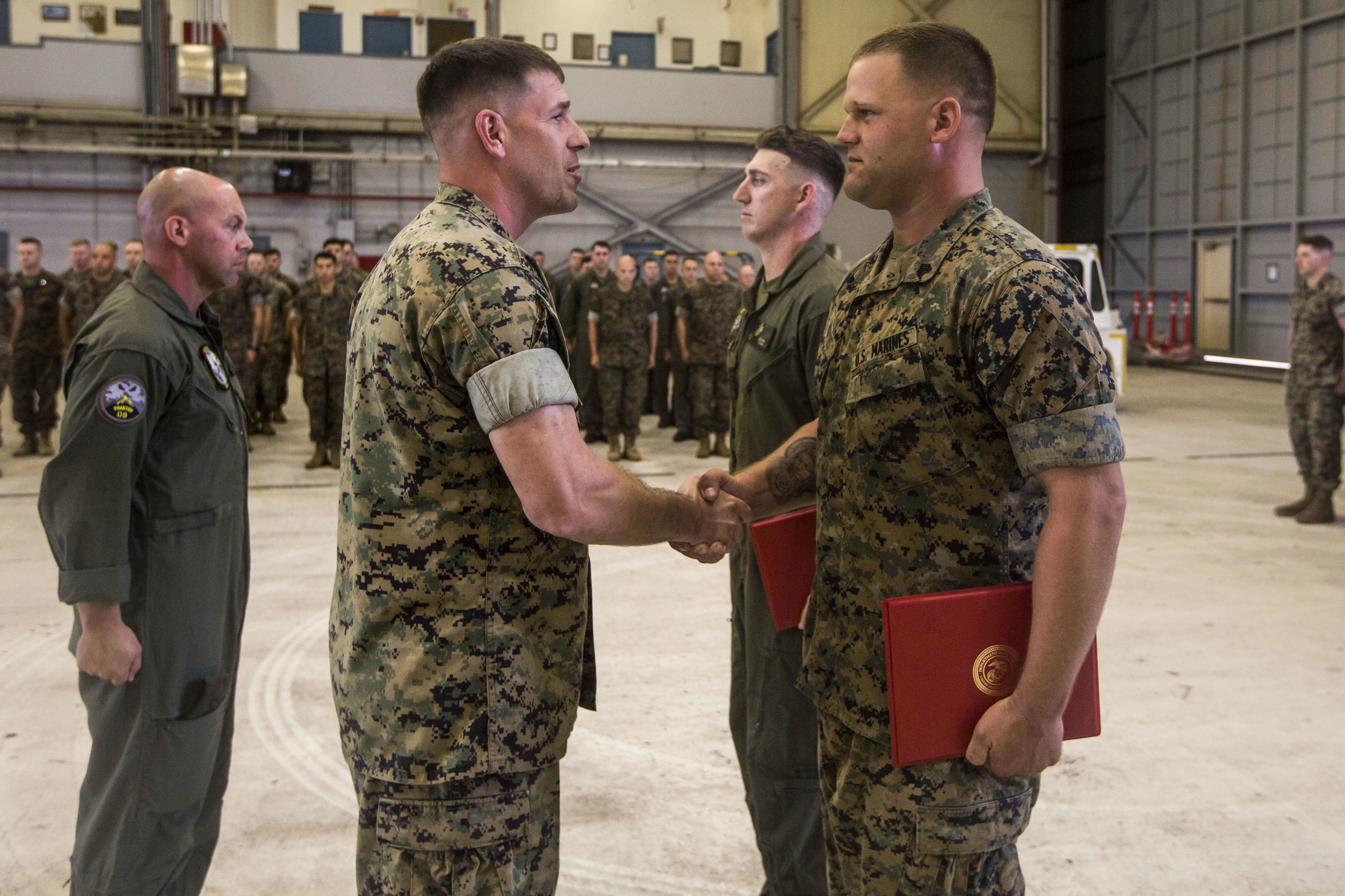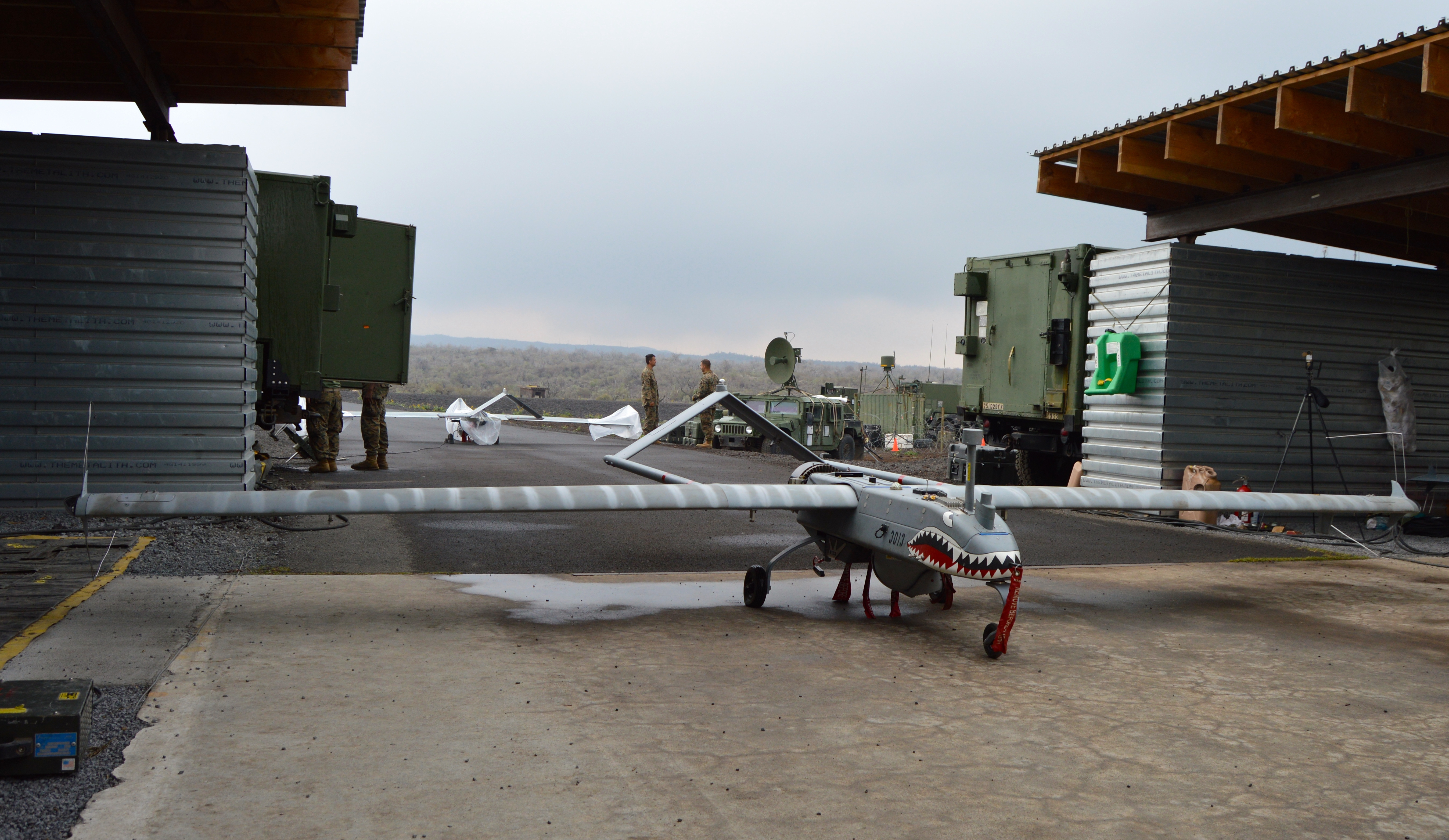
Two Marine Corps unmanned aerial system (UAS) operators last week became the first in the service to earn the Navy and Marine Corps Achievement Medal with the new Remote Impact (“R”) Device.
Sgt. Joseph Latsch and Sgt. Ethan Mintus, UAS operators with Marine Unmanned Aerial Vehicle Squadron 3 (VMU-3) based in Hawaii, received their medals on Dec. 11 after providing UAV support for combat operations overseas, according to a Marine Corps news release that did not specify the location of the operation.
“This award demonstrates the impact of using a UAS during combat operations from a remote location,” Lt. Col. Kenneth Phelps, VMU-3 commanding officer, said in the news release.
“This is very important to the VMU’s and individuals that fly unmanned aircraft because we’re often supporting missions from afar while still having a significant impact on those operations.”
VMU-3 moved to Marine Corps Air Station Kaneohe Bay in 2015 and operates the RQ-7B Shadow Group 3 unmanned aerial vehicle.
The Defense Department announced in January 2016 that it had created “a ‘remote impacts’ device, signified by an ‘R’ to be worn on the relevant decoration, to recognize service members who use remote technology to directly impact combat operations.” DoD also created a “combat” or “C” device “to distinctly recognize those service members performing meritoriously under the most arduous combat conditions; with the “valor” or “V” device being reserved for “unambiguous and distinctive recognition for preeminent acts of combat valor.”

While some UAV missions can be controlled from an operations center halfway across the world from where the actual air vehicles are flying, Mintus and Latsch described their efforts in an unnamed country to support allied forces on the ground.
“We had a couple of weeks of planning on a high value individual (HVI) in the area,” Mintus said in the news release.
“We were using our aircraft as an indirect fires spotting asset.”
Mintus said the decision was made to prepare another aircraft to provide continuous support during the operation.
“A ‘Spoke Operation’ is to extend from our launch and recovery site,” Latsch said in the news release.
“Within 48 hours of touching down on the Spoke site we were in support of the joint task force commander from the friendly foreign military forces of the host country. … We were trying to track enemy targets in order to allow allied aircraft to attack targets with more accuracy. During the time I spent in country, the detachment I was part of played a critical role in supporting our allies on the ground during combat operations.”
Phelps, the commanding officer, praised their work in the field and said they helped demonstrate the importance of UAS operations in combat.
“Sgt. Latsch was the first to go down to a Spoke site that enabled us to actually support different islands for the task force commander. … Sgt. Mintus was prepping another aircraft to launch and relieve himself on-station while still flying a mission for the current aircraft in the air (which was low on fuel and had to land) trying to track the enemy. This helped to extend time on-station so there would be no interruption to the support being given to the friendly forces currently engaged with the enemy,” Phelps said in the news release.
“I think it’s fairly significant these two gentlemen are representative of some of the creative Marines we have in the VMU community. … I’m extremely proud of everything they’ve done and achieved.”





